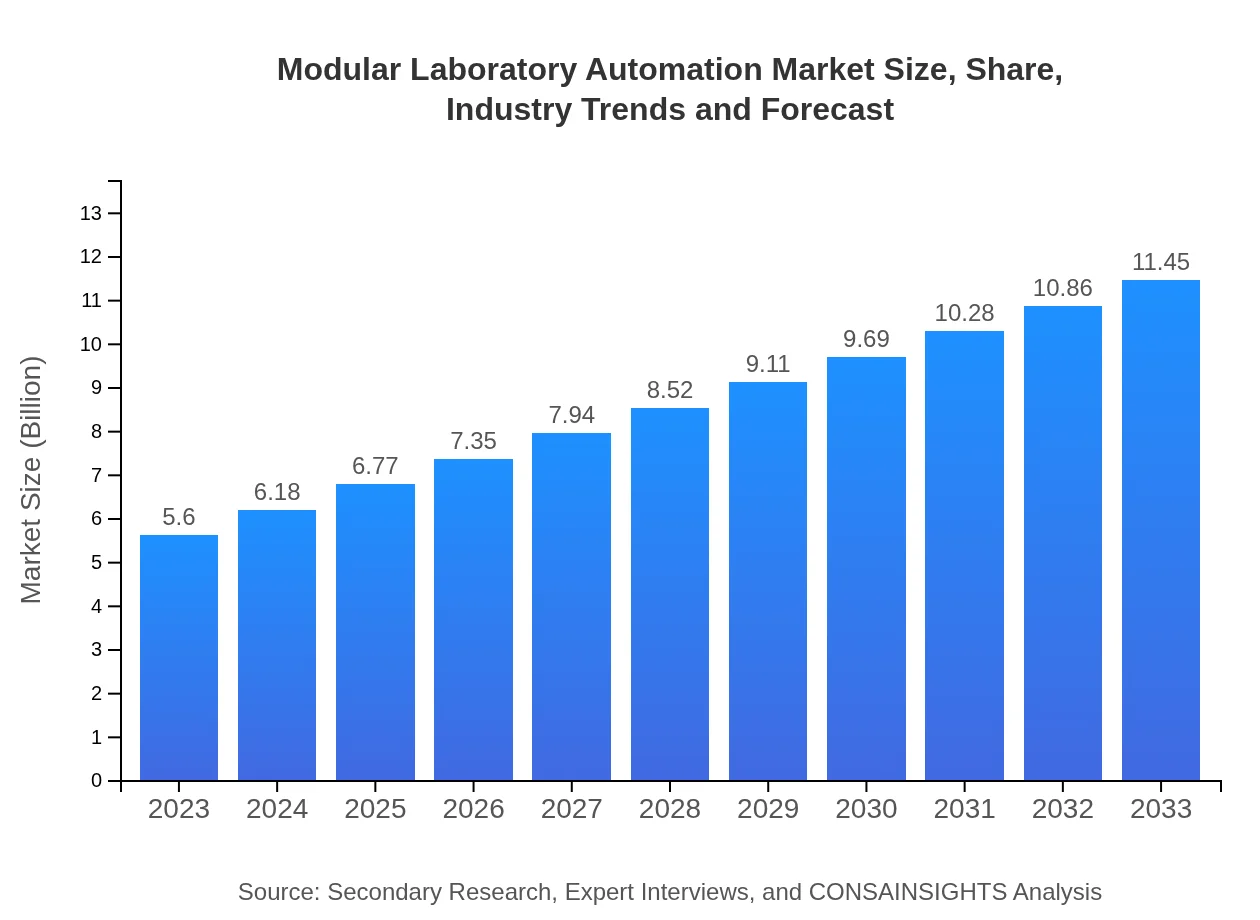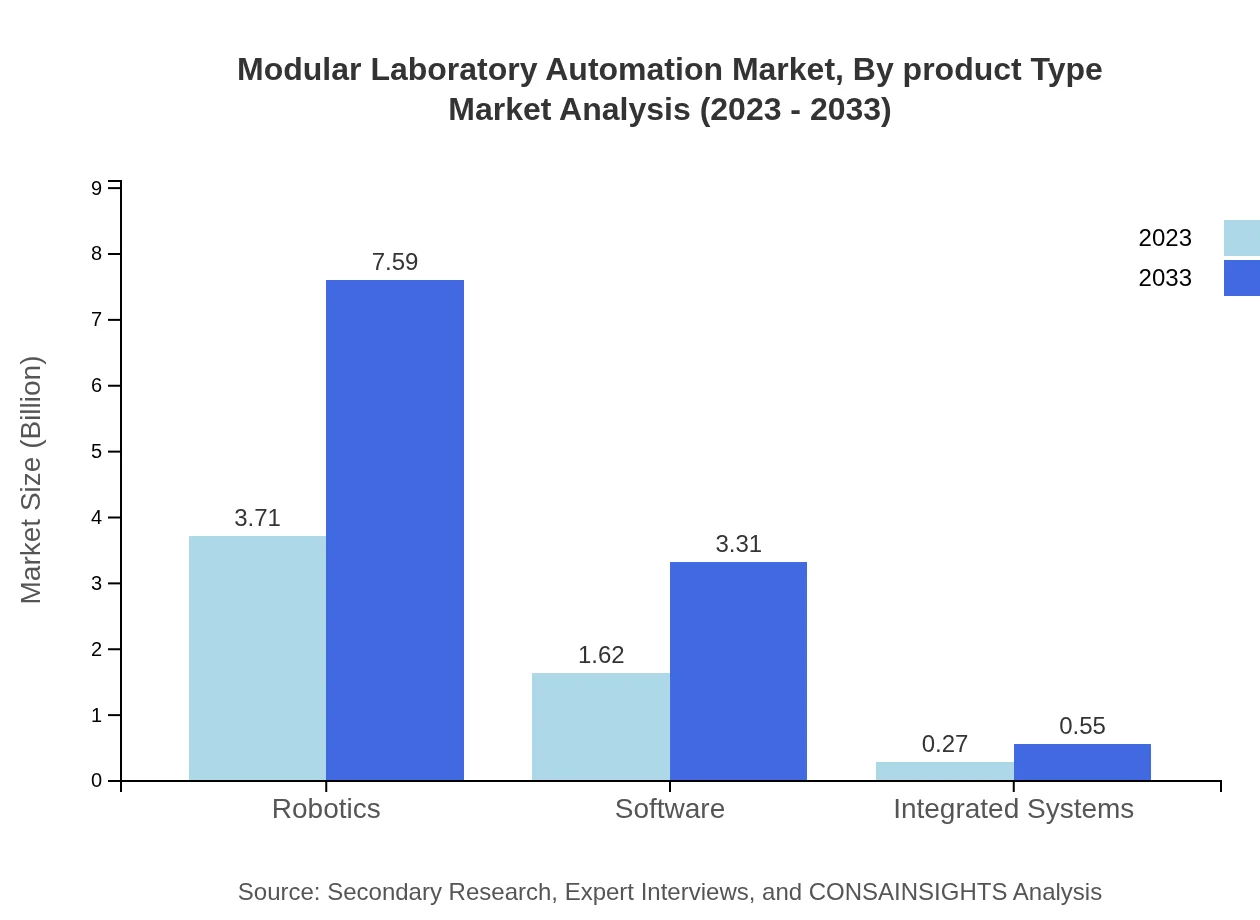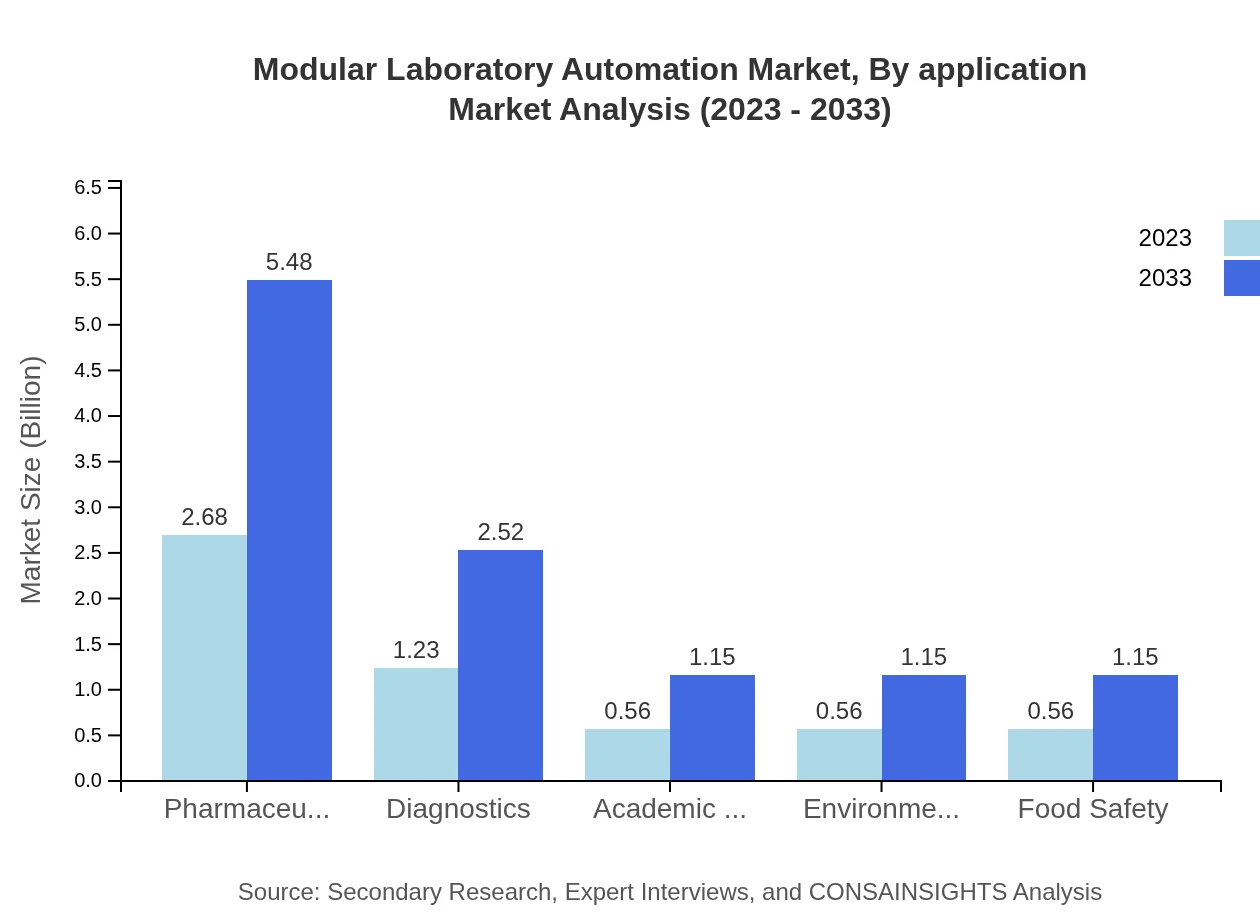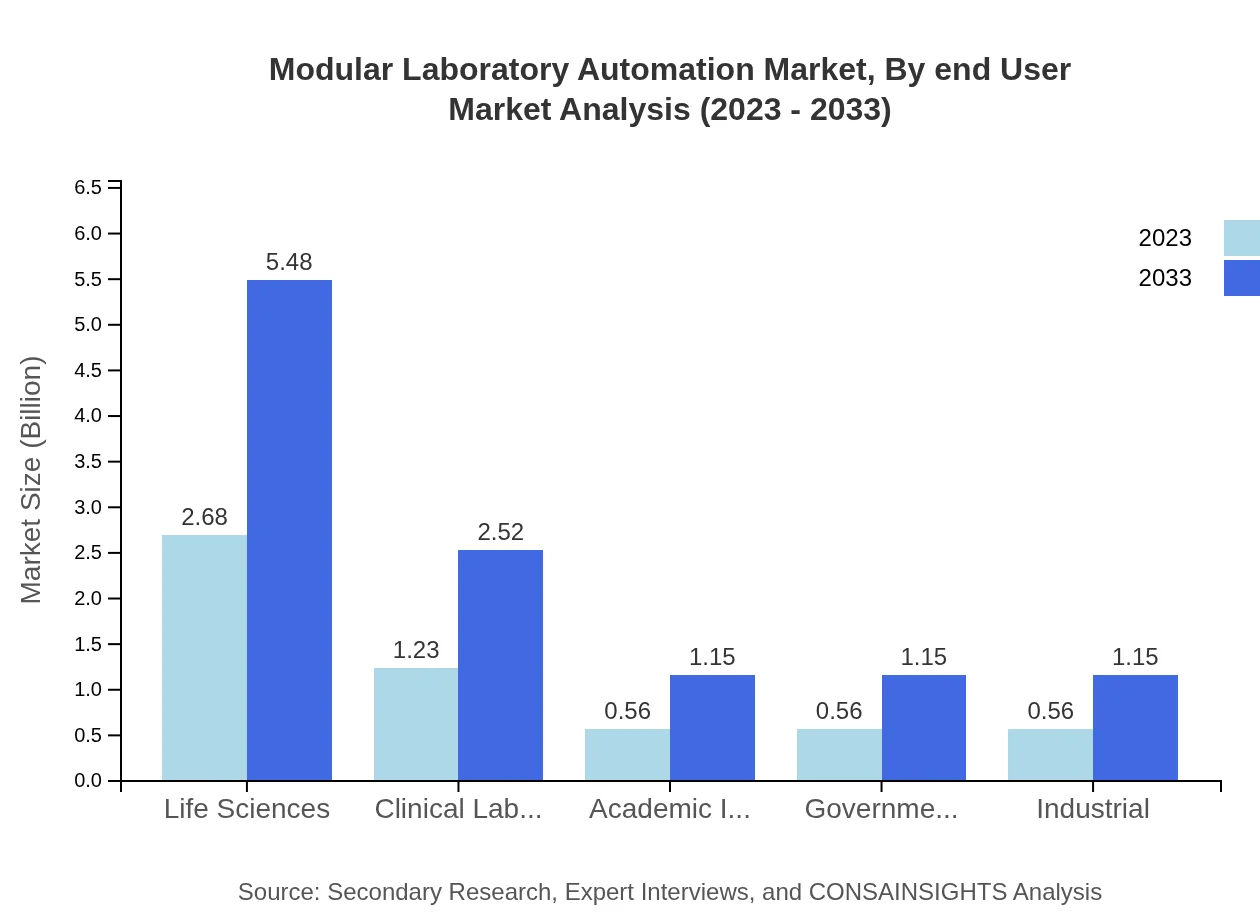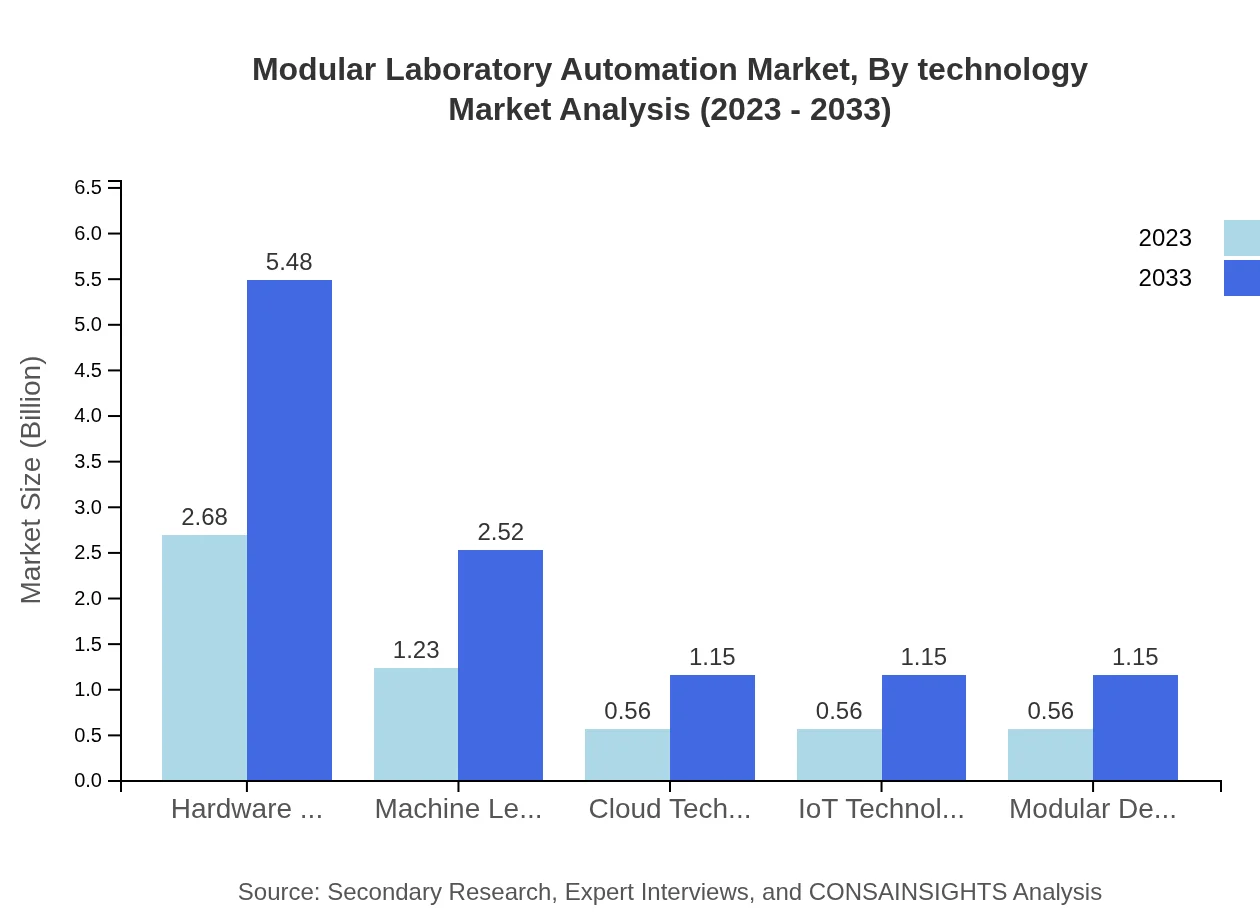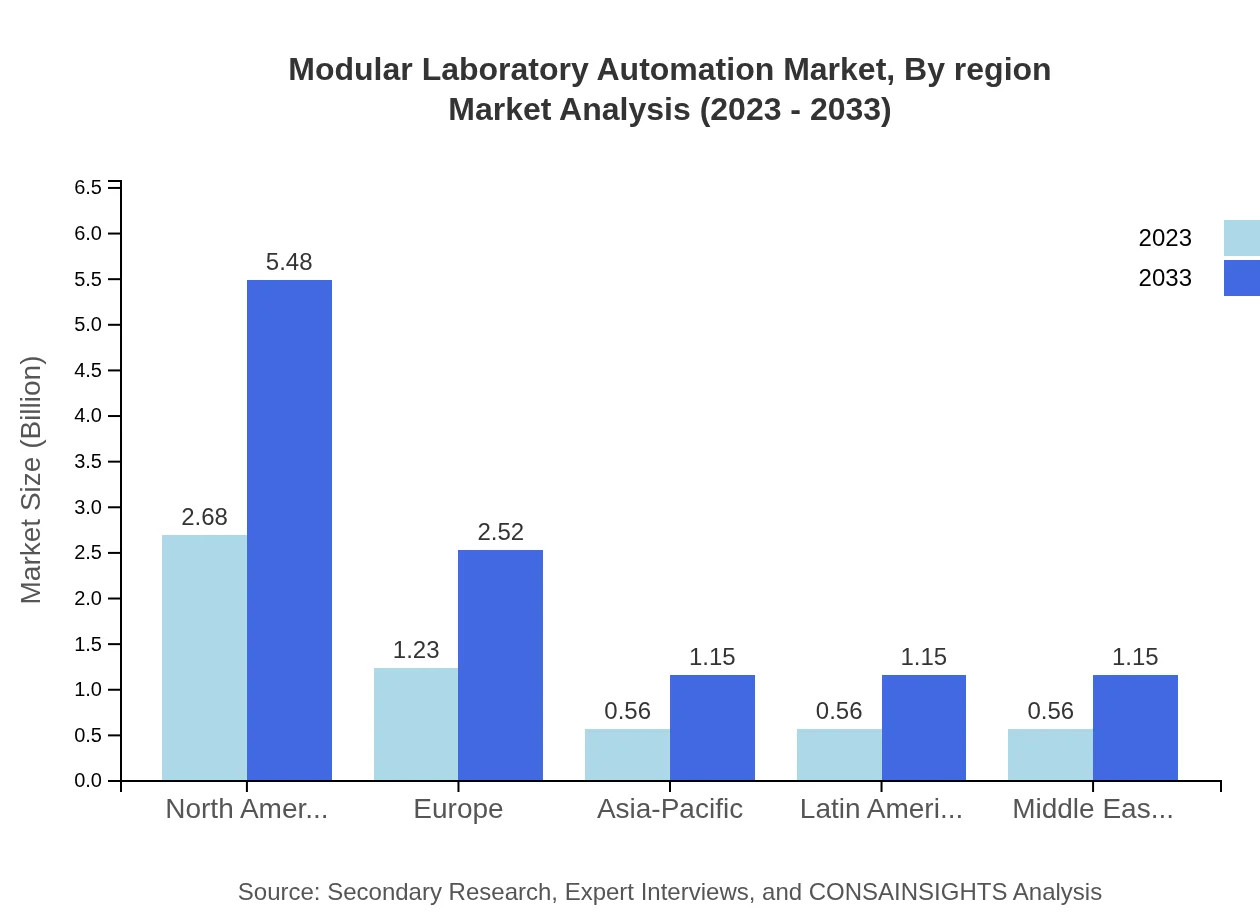Modular Laboratory Automation Market Report
Published Date: 22 January 2026 | Report Code: modular-laboratory-automation
Modular Laboratory Automation Market Size, Share, Industry Trends and Forecast to 2033
This report provides an in-depth analysis of the Modular Laboratory Automation market from 2023 to 2033, highlighting market size, industry trends, regional outlook, and competitive landscape for informed decision-making.
| Metric | Value |
|---|---|
| Study Period | 2023 - 2033 |
| 2023 Market Size | $5.60 Billion |
| CAGR (2023-2033) | 7.2% |
| 2033 Market Size | $11.45 Billion |
| Top Companies | Thermo Fisher Scientific, Abbott Laboratories, Siemens Healthineers, Roche Diagnostics, Beckman Coulter |
| Last Modified Date | 22 January 2026 |
Modular Laboratory Automation Market Overview
Customize Modular Laboratory Automation Market Report market research report
- ✔ Get in-depth analysis of Modular Laboratory Automation market size, growth, and forecasts.
- ✔ Understand Modular Laboratory Automation's regional dynamics and industry-specific trends.
- ✔ Identify potential applications, end-user demand, and growth segments in Modular Laboratory Automation
What is the Market Size & CAGR of Modular Laboratory Automation market in 2033?
Modular Laboratory Automation Industry Analysis
Modular Laboratory Automation Market Segmentation and Scope
Tell us your focus area and get a customized research report.
Modular Laboratory Automation Market Analysis Report by Region
Europe Modular Laboratory Automation Market Report:
The European market is set to expand from USD 1.72 billion in 2023 to USD 3.52 billion by 2033. The focus on compliance with strict regulatory standards and the increased emphasis on research efficiency in European laboratories fuel this growth. The implementation of automation in drug development and production processes is a key driver.Asia Pacific Modular Laboratory Automation Market Report:
The Asia Pacific region is expected to witness substantial growth, with the market projected to grow from USD 1.15 billion in 2023 to USD 2.36 billion by 2033. The increasing investments in healthcare infrastructure and pharmaceutical R&D in countries like China and India are driving this growth. Furthermore, the focus on advanced research in academic institutions is contributing to the demand for automation solutions.North America Modular Laboratory Automation Market Report:
North America is the largest market for Modular Laboratory Automation, anticipated to grow from USD 1.81 billion in 2023 to USD 3.69 billion by 2033. The region's well-established pharmaceutical and biotechnology industries are significantly contributing to market growth, alongside increased automation in clinical laboratories.South America Modular Laboratory Automation Market Report:
In South America, the Modular Laboratory Automation market is small but growing, with projections indicating growth from USD 0.25 billion in 2023 to USD 0.51 billion by 2033. The slow adoption is mitigated by a rising emphasis on laboratory efficiency and modernization initiatives supported by government and private sectors.Middle East & Africa Modular Laboratory Automation Market Report:
The Middle East and Africa have a developing Modular Laboratory Automation market, expected to grow from USD 0.66 billion in 2023 to USD 1.36 billion by 2033. The growth is supported by increasing investments in healthcare systems and research institutions, alongside a growing demand for automation in diagnostic laboratories.Tell us your focus area and get a customized research report.
Modular Laboratory Automation Market Analysis By Product Type
In terms of product type, the largest segment is robotics, capturing a significant market share. Forecasts indicate that the robotics market will grow from USD 3.71 billion in 2023 to around USD 7.59 billion by 2033. This segment's growth is primarily driven by increasing automation needs across various laboratory settings.
Modular Laboratory Automation Market Analysis By Application
The pharmaceuticals application segment is expected to dominate the market, growing from USD 2.68 billion in 2023 to USD 5.48 billion by 2033. The diagnostics segment also shows significant growth potential, increasing from USD 1.23 billion in 2023 to USD 2.52 billion by 2033.
Modular Laboratory Automation Market Analysis By End User
Life Sciences is the leading end-user segment, anticipated to maintain a steady market share while growing from USD 2.68 billion in 2023 to USD 5.48 billion by 2033. Academic institutions and government laboratories are other key end-users driving demand.
Modular Laboratory Automation Market Analysis By Technology
Technologies like machine learning and IoT are transforming laboratory automation. Machine learning applications are projected to increase from USD 1.23 billion in 2023 to USD 2.52 billion by 2033, while IoT technologies will grow from USD 0.56 billion to USD 1.15 billion in the same period.
Modular Laboratory Automation Market Analysis By Region
The market analysis by region indicates that North America will continue to lead overall, but regions like Asia Pacific are emerging rapidly, showcasing nearly double the market size in 2033 compared to 2023. Europe remains competitive, largely driven by regulatory demands.
Modular Laboratory Automation Market Trends and Future Forecast
Tell us your focus area and get a customized research report.
Global Market Leaders and Top Companies in Modular Laboratory Automation Industry
Thermo Fisher Scientific:
Thermo Fisher Scientific is a leading global provider of laboratory instrumentation, reagents, and consumables, enhancing laboratory automation efficiency through innovative solutions.Abbott Laboratories:
Abbott Laboratories specializes in drug development and diagnostics, focusing on modular automation to streamline operations in clinical testing and research.Siemens Healthineers:
Siemens Healthineers develops advanced laboratory automation technologies that improve workflow efficiency and accuracy in diagnostic processes.Roche Diagnostics:
Roche Diagnostics offers a wide range of laboratory automation solutions aimed at optimizing laboratory processes in biotechnology and clinical applications.Beckman Coulter:
Beckman Coulter brings essential diagnostic equipment and automation technologies to laboratories, enhancing throughput and data integrity.We're grateful to work with incredible clients.









FAQs
What is the market size of modular Laboratory Automation?
The modular laboratory automation market was valued at approximately $5.6 billion in 2023 and is projected to grow at a CAGR of 7.2% through 2033, indicating robust demand and expansion in automation technologies for laboratory settings.
What are the key market players or companies in the modular Laboratory Automation industry?
Key players in the modular laboratory automation market include companies that specialize in robotics, software solutions, and integrated systems. These organizations focus on developing innovative automation technologies to enhance laboratory workflows and improve efficiency.
What are the primary factors driving the growth in the modular Laboratory Automation industry?
The primary growth factors include increased demand for efficiency in laboratories, advancements in automation technologies, the rise in research and development activities, and a focus on minimizing human error in laboratory processes.
Which region is the fastest Growing in the modular Laboratory Automation?
The fastest-growing region is North America, with a market size projected to rise from $1.81 billion in 2023 to $3.69 billion by 2033, benefitting from strong investments in technology and innovation.
Does ConsaInsights provide customized market report data for the modular Laboratory Automation industry?
Yes, ConsaInsights offers customized market report data, catering to specific needs and preferences of clients in the modular laboratory automation sector, ensuring relevance and tailored insights.
What deliverables can I expect from this modular Laboratory Automation market research project?
Deliverables typically include a comprehensive market analysis report, trend insights, competitive landscape assessments, regional analysis, and segment performance metrics, which will provide actionable recommendations for businesses.
What are the market trends of modular Laboratory Automation?
Current trends include increased adoption of robotic systems, integration of advanced software and IoT technologies, modular design innovations, and a shift towards analytical and clinical automation, enhancing overall lab efficiency.

